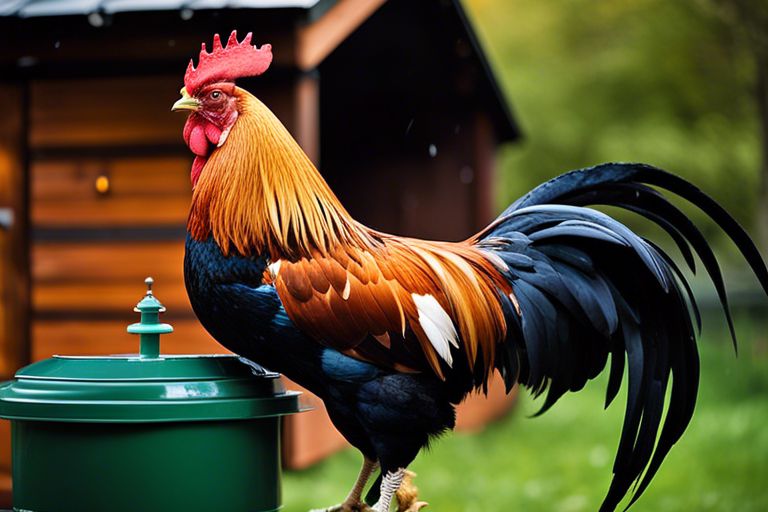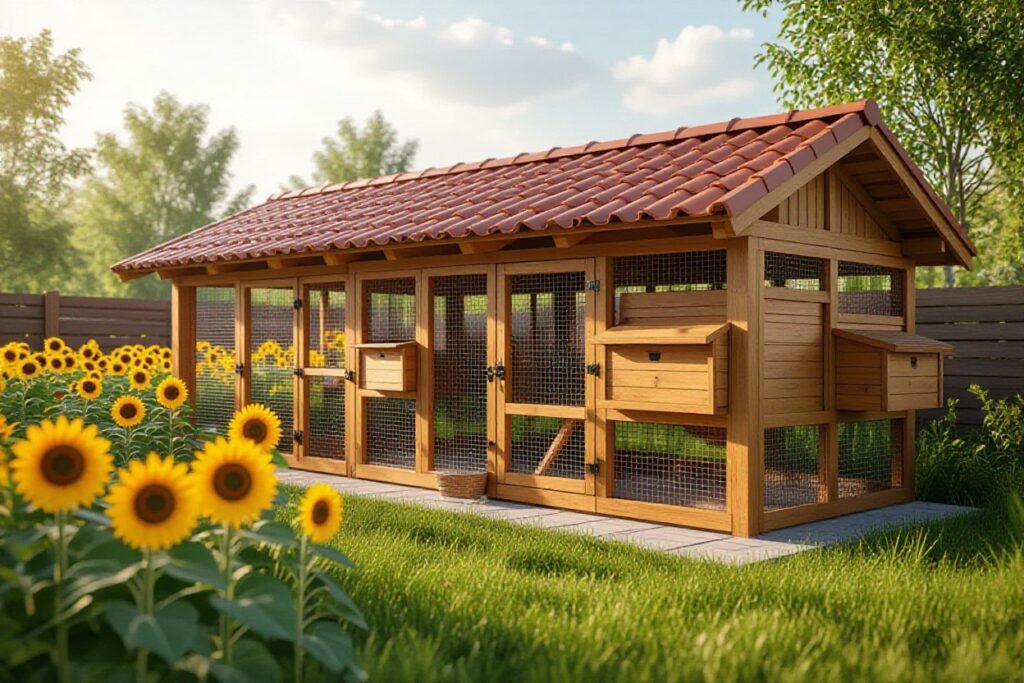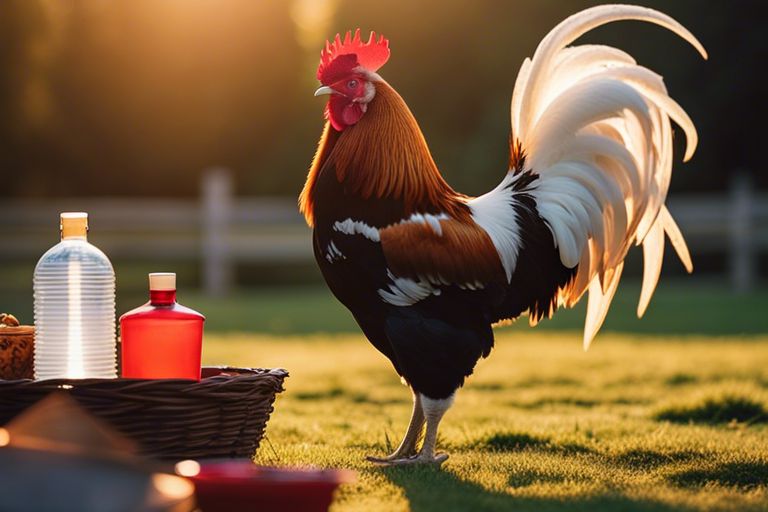Tips for caring for your rooster year-round are vital for maintaining the health and well-being of these majestic birds. Roosters play a crucial role in the flock, from protecting hens to crowing to mark the dawn. To ensure your rooster thrives in all seasons, it’s important to provide proper nutrition, shelter, and veterinary care. By following these crucial tips, you can create a nurturing environment for your rooster and enjoy the benefits of having a happy and healthy feathered friend year-round.
Nutrition and Feeding
Essential Nutrients for a Healthy Rooster
For an optimal health of your rooster, it is necessary to provide a well-balanced diet that includes all the necessary nutrients. Proteins are crucial for muscle development and egg production, while carbohydrates provide energy for daily activities. Additionally, vitamins and minerals like calcium and phosphorus are necessary for bone strength and overall immunity. Ensuring your rooster’s diet is rich in these nutrients will help maintain its health and vitality year-round.
Feeding Schedules and Portion Sizes
To ensure your rooster maintains a healthy weight and receives adequate nutrition, it is important to establish a consistent feeding schedule and portion sizes. Roosters should be fed at the same times each day to regulate their metabolism and prevent overeating. Portion sizes should be appropriate for the size and activity level of your rooster to avoid obesity or malnourishment. Monitoring your rooster’s body condition and adjusting its feeding schedule and portion sizes accordingly will help support its overall well-being.
Feeding your rooster a balanced diet and monitoring its feeding schedule and portion sizes are crucial aspects of rooster care year-round. By providing the necessary nutrients and establishing a consistent feeding routine, you can help ensure your rooster stays healthy and happy for years to come.
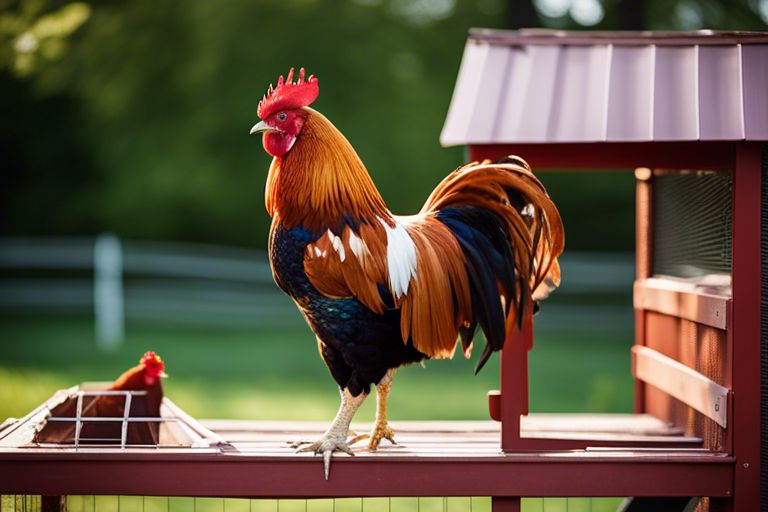
Housing and Comfort
Designing a Rooster-Friendly Coop
Coop design plays a crucial role in providing a comfortable and safe environment for your rooster. Make sure the coop is spacious enough to accommodate the number of roosters you have, with at least 4 square feet of space per bird. Include roosting bars, nesting boxes, and proper ventilation to ensure their well-being.
Maintaining Proper Temperature and Ventilation
On Temperature and Ventilation
| Temperature | Ventilation |
|---|---|
| Keep the coop well-insulated to regulate temperature, especially during extreme weather conditions. | Provide adequate ventilation to prevent the buildup of harmful gases and moisture, which can lead to respiratory issues. |
Housing your rooster in a properly designed coop is vital for their well-being year-round. Ensure the coop is well-insulated to maintain the right temperature, especially during harsh weather conditions. Adequate ventilation is also crucial to prevent the accumulation of dangerous gases and moisture that can impact your rooster’s health. Regularly monitor the temperature and airflow in the coop to keep your rooster comfortable and healthy.
Health and Hygiene
Preventing and Recognizing Common Health Issues
To ensure the well-being of your rooster year-round, it is crucial to be vigilant about preventing and recognizing common health issues. To prevent health issues, provide a balanced diet, clean water, and a clean living environment. Regularly inspect your rooster for any signs of illness such as reduced activity, abnormal droppings, or difficulty breathing. Immediate attention to these signs can prevent minor issues from escalating into more serious health problems.
Regular Grooming and Cleaning Protocols
The key to maintaining your rooster’s overall health and cleanliness is through regular grooming and cleaning protocols. The feathers, feet, and beak of the rooster should be checked regularly for any signs of mites, lice, or infections. Cleaning the coop on a regular basis, removing soiled bedding, and providing fresh bedding will help prevent the buildup of bacteria and parasites. Regular grooming not only keeps your rooster looking its best, but it also helps in preventing potential health issues from arising.
Hygiene is paramount when it comes to caring for your rooster year-round. Proper sanitation practices, such as regularly cleaning and disinfecting the coop, are necessary in preventing the spread of diseases. Additionally, maintaining good hygiene practices, such as washing your hands after handling your rooster or cleaning the coop, can help in ensuring both your rooster’s health and your own well-being.
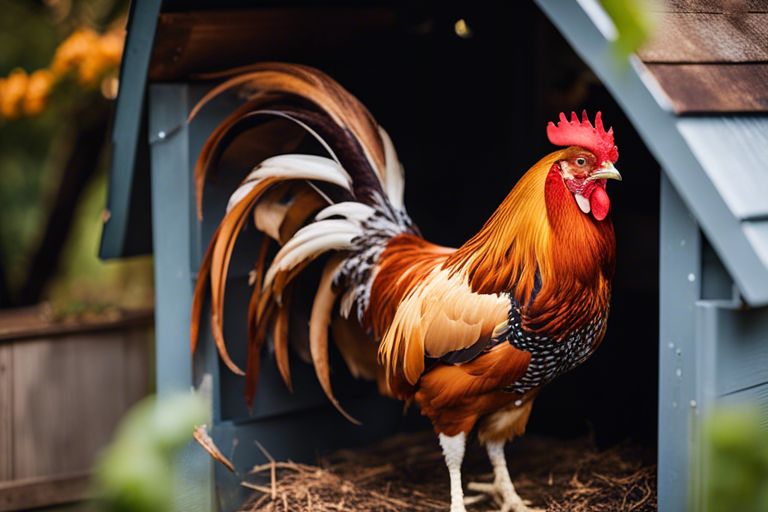
Managing Rooster Social Dynamics
Ensuring a Harmonious Flock
All roosters have their unique personalities, and managing their social dynamics is vital for a peaceful flock. Provide enough space for each rooster to establish their territory and avoid overcrowding. Introducing new roosters gradually and monitoring their interactions can help prevent conflicts. Additionally, ensuring a balanced diet and adequate opportunities for exercise can help reduce aggression among roosters.
Handling Aggression and Mating Behavior
With roosters, aggression and mating behavior can be common challenges. It’s crucial to observe rooster behavior closely and intervene if necessary to prevent excessive aggression. Separating aggressive roosters from the flock temporarily or providing distractions like nesting boxes can help diffuse tense situations. Understanding that mating behavior is natural but setting boundaries to prevent over mating or injuries among hens is also important.
To effectively manage rooster social dynamics, it’s vital to establish yourself as the flock leader. Consistent handling and interaction with the roosters can help them recognize and respect your authority, reducing instances of aggression. Providing a structured routine for feeding and coop maintenance can also help establish order within the flock and minimize conflicts.
Seasonal Considerations
Caring for Your Rooster During Cold Months
One of the most important considerations during the cold months is to provide proper shelter for your rooster. Make sure the coop is well-insulated and draft-free to protect your rooster from the cold temperatures. Providing extra bedding and ensuring there are no leaks in the roof can help your rooster stay warm and comfortable during the winter.
Preparing Your Rooster for the Heat of Summer
Roosters can struggle in extreme heat, so it’s important to take precautions to keep them cool during the summer months. Make sure your rooster has access to shade throughout the day and provide plenty of fresh water for hydration. Consider setting up a misting system or providing shallow pans of water for your rooster to cool off in.
Understanding the signs of heat stress in roosters is crucial during the summer months. Look out for panting, lethargy, and holding wings away from the body, which are all signs that your rooster may be overheating. If you notice any of these signs, move your rooster to a cooler area and offer plenty of water to help them cool down.
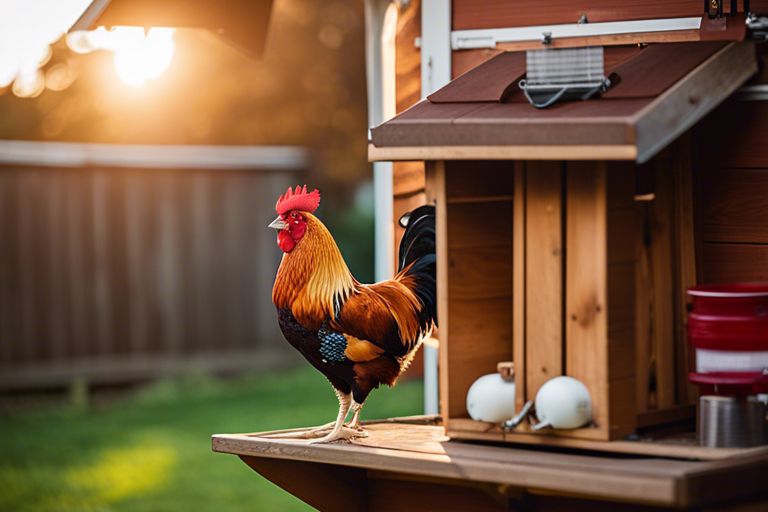
Training and Handling
Techniques for Safe and Effective Handling
Many rooster owners may find handling their birds to be a challenge. An important tip to remember is to always approach a rooster from the front to avoid startling him. When picking up a rooster, gently secure his wings against his body to prevent flapping. Support his body and legs securely to avoid injury or escape. Consistent, calm handling will help your rooster become more comfortable with human interaction over time.
Training Your Rooster for Better Cooperation
Better cooperation from your rooster can make caring for him much easier. It is necessary to establish yourself as the dominant figure in your rooster’s life through consistent and firm training. Teaching basic commands such as ‘step up’ and ‘stay’ can help establish boundaries and reinforce your role as the leader. Rewarding good behavior with treats can also reinforce positive interactions between you and your rooster, leading to a more cooperative relationship.
It is important to remember that training takes time and patience. Consistency is key in reinforcing the behaviors you want to see in your rooster. With regular training sessions and positive reinforcement, you can shape your rooster’s behavior and encourage better cooperation year-round.
Conclusion
Conclusively, caring for your rooster year-round requires attention to key aspects such as nutrition, housing, health, and behavior. By providing a balanced diet, safe shelter, regular health checks, and understanding their natural instincts, you can ensure the well-being and longevity of your rooster. Implementing these important tips will not only maintain your rooster’s health but also foster a strong bond between you and your feathered friend.
FAQ
Q: Why is caring for a rooster necessary year-round?
A: Caring for a rooster year-round ensures its health and well-being, promoting a longer and happier life for your feathered friend.
Q: What should I include in a rooster’s daily care routine?
A: A rooster’s daily care routine should include providing fresh water, proper nutrition, a clean living environment, and regular health check-ups.
Q: How important is a balanced diet for a rooster’s overall health?
A: A balanced diet is crucial for a rooster’s overall health as it provides necessary nutrients for growth, immune function, and energy levels.
Q: How can I ensure my rooster stays healthy during extreme weather conditions?
A: To ensure your rooster stays healthy during extreme weather conditions, provide adequate shelter, ventilation, and fresh water at all times.
Q: What are some common health issues that roosters may face, and how can they be prevented?
A: Common health issues for roosters include respiratory infections, parasites, and injuries. These can be prevented by maintaining a clean environment, regular check-ups, and proper nutrition.
Q: How can I keep my rooster active and engaged throughout the year?
A: To keep your rooster active and engaged, provide opportunities for foraging, dust bathing, and social interaction with other chickens.
Q: When should I seek professional help for my rooster’s health concerns?
A: You should seek professional help for your rooster’s health concerns if you notice any significant changes in behavior, appetite, or physical appearance, as these could indicate underlying health issues that require veterinary attention.
